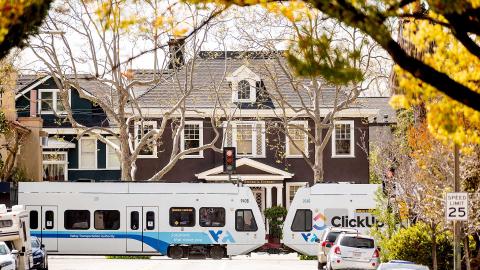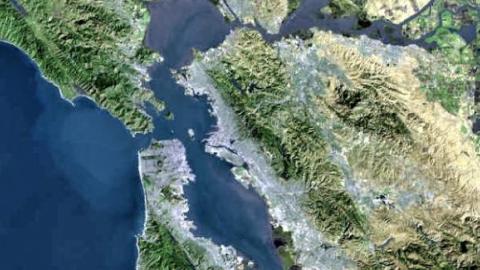
The critical issues facing the Bay Area – from transportation and housing to the economy, the environment and social equity – are probed in the new 90-plus page Futures Final Report entitled “Resilient and Equitable Strategies for the Bay Area’s Future.”
This report represents the culmination of the Horizon initiative, which explored how the Bay Area may fare in an uncertain future – and how it could respond to uncertainty in the years ahead. Throughout 2018 and 2019, the Metropolitan Transportation Commission and Association of Bay Area Governments advanced the Horizon initiative to explore a wide range of challenges for the Bay Area’s future.
Building upon the Futures Interim Report – published in March 2019 – this Futures Final Report explores how different strategies could put the Bay Area on a more resilient and equitable path forward over the next 30 years. It includes specific recommendations to build a stronger foundation for Plan Bay Area 2050, the next long-range regional plan currently under development.
This report represents the beginning of critical conversations, which will stretch through much of 2020. Should the Bay Area encourage housing development in a broader range of geographies – beyond Priority Development Areas – to achieve equity and sustainability goals? How should the Bay Area weigh trade-offs between critical transportation investments, especially if new revenues become available? And how can local jurisdictions and the region work together to fund critical needs to prepare for sea level rise and earthquakes?
To move toward a Bay Area that is affordable, connected, diverse, healthy and vibrant for all, new strategies will be needed in the years ahead. A sampling of what the report observed on core topics:
Affordable: Achieving a greater share of affordable housing will require a robust suite of strategies, from new regional revenues for affordable housing to greater densities near public transit.
Connected: Reducing the number of automobile trips will be essential for the Bay Area to achieve its state-mandated greenhouse gas target in Plan Bay Area 2050 – roadway pricing and transit investments can play roles in supporting this.
Diverse: To advance a more inclusive regional land use strategy, more affordable housing is needed, especially in high-resource communities with the greatest economic opportunities.
Healthy: Resilience strategies – from sea level rise protections to retrofits of aging Bay Area homes – can drastically lessen climate, earthquake and other hazardous effects on the Bay Area’s economy, infrastructure and housing market.
Vibrant: Partnering with the state and federal government will be key to growing middle-class employment; exploring strategies that reduce volatility in these jobs may reduce the damaging effects seen in the last recession.



Submit your comment
In order to receive a reply to your comment, please provide an email address.